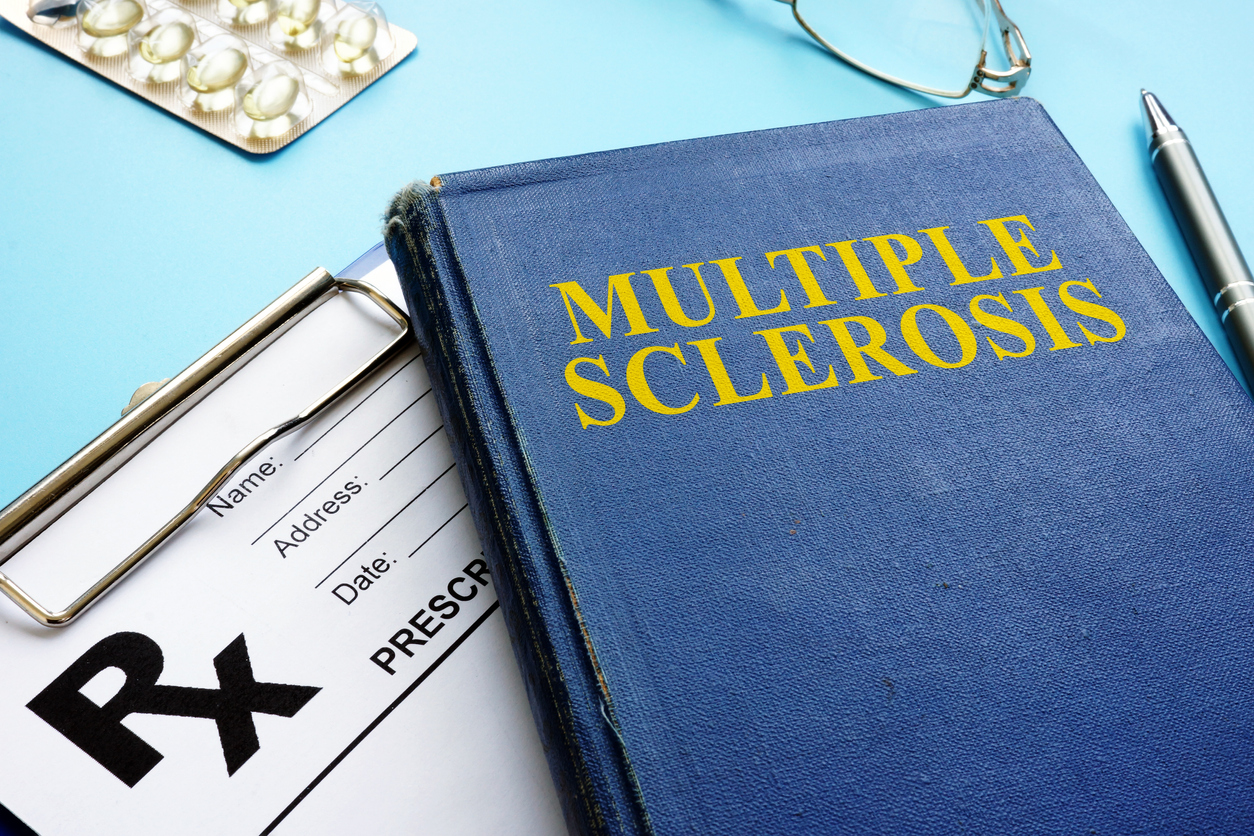Understanding Constipation and Incontinence with Multiple Sclerosis

Understanding Constipation and Incontinence with Multiple Sclerosis
Constipation can be one of the more uncomfortable and unpleasant symptoms of Multiple Sclerosis (“MS”). Approximately 35% of people with MS experience constipation, and 25% of people with MS report at least one episode of incontinence per week.
People with Multiple Sclerosis also have an elevated risk of stroke, when compared to the general population. The signs and symptoms of stroke are similar to those of MS, so it’s important to understand the difference between the two. Both MS and stroke can cause a disruption in the “brain-gut axis”, meaning they disrupt communications between the brain and bowel, causing an increased likelihood of constipation, fecal incontinence, and other gastrointestinal issues.
It is important to consult with a physician before commencing any medications or other forms of constipation relief.
Why Multiple Sclerosis Can Cause Constipation
Common causes of constipation for people with MS include:
- reduced and/or limited physical activity
- poor dietary habits
- decreased movement of food through the intestinal tract
- weakened abdominal muscles (making the act of passing a bowel movement difficult)
- relaxing of pelvic floor muscles
- malfunctioning signals from the bowel to the brain
- and reduced fluid intake (in an attempt to control/avoid bladder problems)
Certain medications (both prescribed and OTC) can also increase risk for constipation. Medications that may increase risk of constipation include antidepressants, anti-spasticity medications, overactive bladder medications, painkillers, and high blood pressure medications.
Constipation Symptoms and Signs
Symptoms of constipation include:
- bloating and pain in the lower abdomen
- needing to strain to pass a bowel movement
- less frequent bowel movements (typically fewer than three bowel movements per week)
- hard, dry, or small feces
- and an incomplete evacuation of the bowel
People with MS are also more prone to fecal incontinence due to weakening of the pelvic floor muscles and/or reduced control over the muscles of the pelvic floor.
Symptoms can range from small leakage of stool and/or gas to the total inability to control bowel movements.
Understanding Symptoms of a Stroke versus Multiple Sclerosis
While Multiple Sclerosis and stroke are separate conditions, the signs and symptoms can be similar, so it is crucial to understand the difference between the two. Depending on the affected part of the brain, both MS and stroke can cause the following symptoms:
- Headache
- Numbness or weakness in the arms, face, or legs
- Speech problems
- Confusion or difficulty focusing
- Vision problems
- Decreased mobility
Symptoms of a stroke tend to come on quickly and MS symptoms usually develop more slowly, typically over hours or days. It’s important for people with Multiple Sclerosis to track the symptoms they experience when having a flare-up in order to determine if the signs are ‘usual’ or could be a sign of something else, such as a stroke.
There is a quick and effective test for determining if symptoms are likely to indicate a stroke, called the “FAST” test, if they are diagnosed and recognized within 3 hours of the onset of symptoms.
F = Face: does one side of the face droop when smiling?
A = Arms: when both arms are raised, does one arm drift downward?
S = Speech: does speech sound strange or slurred?
T = Time: call 911 immediately if any of these symptoms are present.
If you think you may be having a stroke it is important to contact a medical professional immediately.
Constipation After a Stroke
Up to 50% of people experience gastrointestinal complications after a stroke⁴. Contributing factors include reduced activity, mental health conditions such as depression, cognitive impairment, and side effects due to certain medications such as antidepressants, NSAIDS, anticholinergics, and anticonvulsants.
Both MS and stroke cause brain injury, and can be a common cause of gastrointestinal disorders, including constipation.
An effective bowel management program helps alleviate discomfort and further medical complications.
Lifestyle Changes to Promote Regular Bowel Movements
There are key lifestyle changes that reduce the risk of bowel problems after a stroke, if you have MS, or both:
Bowel Routine: It is important to establish a regular bowel management program to improve quality of life and prevent further medical complications from constipation or incontinence. Establish a predictable time for bowel movements to train the bowel, prevent accidents, soften stool, decrease spasticity, and interruption of bladder function (from stool buildup in the rectum). First thing in the morning or half an hour after a small meal are ideal.
Proper Fluid Intake: Ideally 8-12 cups of non-caffeinated fluid daily to moisten stool and make them easier to pass. Reduce or eliminate diuretics such as alcohol and caffeine.
Physical Activity: Be sure to maintain an appropriate level of physical activity (based on a consultation with a physician) to help regulate bowel movements.
Fiber Intake: Consuming a proper amount of daily dietary fiber from whole grains, fruits, nuts, seeds, and legumes can help prevent and/or alleviate constipation. Avoid foods that can exacerbate constipation such as dairy and red meat.
Positioning: ensure proper positioning during defection (squatting is the most desirable position).
ENEMEEZ® is Fast-Acting & Gentle
ENEMEEZ® is a unique stool softener laxative. While oral products take 12 to 72 hours for relief, our mini-enema works within 2 - 15 minutes!
Your comfort is important to us, which is why we developed ENEMEEZ® to act quickly and be as gentle as possible. Our formula produces fast, predictable results, typically in 2–15 minutes, with no after-burn. ENEMEEZ® are easy to use, have a soft latex-free tube, and also work well for people with reflux issues or nausea.
ENEMEEZ® has been a preferred and trusted formula assisting people to improve their bowel care needs for more than 15 years. The convenient twist-off tip makes ENEMEEZ® easy to administer for safe and effective bowel care needs. You can request a free sample, or purchase ENEMEEZ® and ENEMEEZ® Plus easily on our website. You can also find answers to frequently asked questions, and watch this quick video on how to use our products.
Disclaimer: The material contained is for reference purposes only. Quest Healthcare, A Division of Quest Products, LLC, does not assume responsibility for patient care. Consult a physician prior to use. Copyright 2023 Quest Healthcare, A Division of Quest Products, LLC.
Sources:
- ‘Highlights of Symptoms - Bowel Management in MS’ by Aliza Ben-Zacharia, DNP, ANP, MSCN ‘Bowel Problems: The Basic Facts, Multiple Sclerosis’ by Nancy J. Holland, RN, EdD, and Robin Frames ‘Bowel Management in Multiple Sclerosis’ by Nancy J. Holland, RN, EdD and Patricia Kennedy, RN, CNP, MSCN
- https://mymsaa.org/ms-information/symptoms/bowel-problems/
- https://msfocus.org/Magazine/Magazine-Items/Posted/Tips-for-Managing-Constipation-with-MS
- Krogh K, Christensen P, Laurberg S. Colorectal symptoms in patients with neurological diseases. Acta Neurol Scand 2001;103:335–43.
- Stroke Symptoms vs. MS: The Difference Between a Stroke & MS (webmd.com)
- Multiple sclerosis and stroke: a systematic review and meta-analysis - PubMed (nih.gov)
- Stroke Signs and Symptoms | cdc.gov












